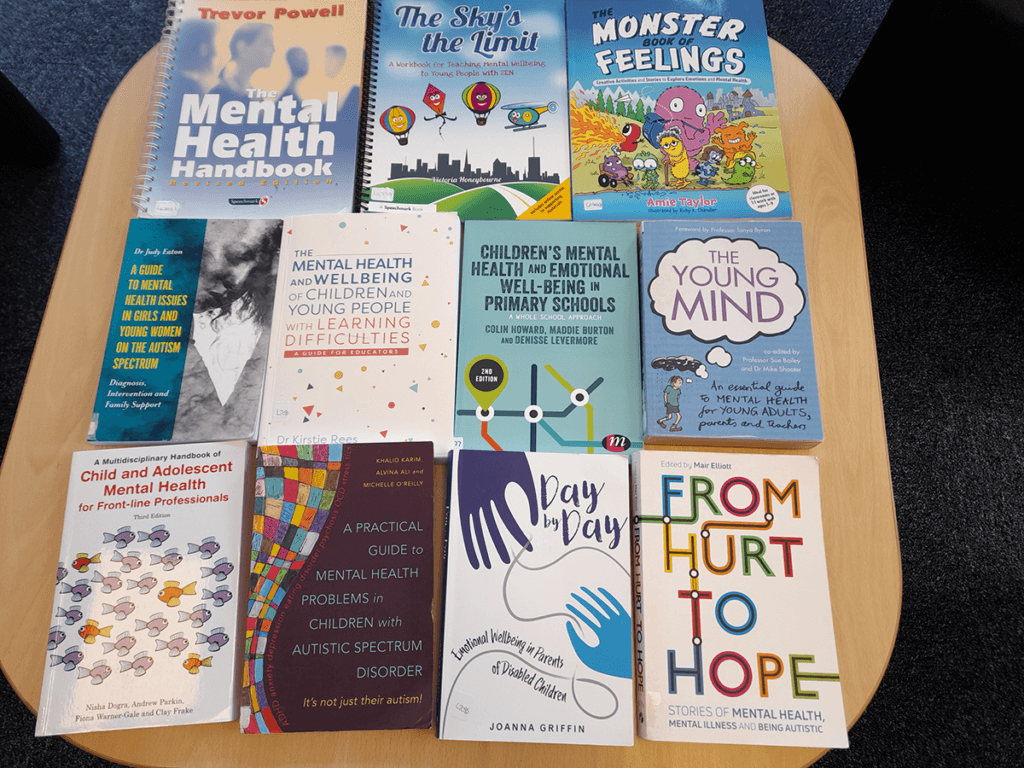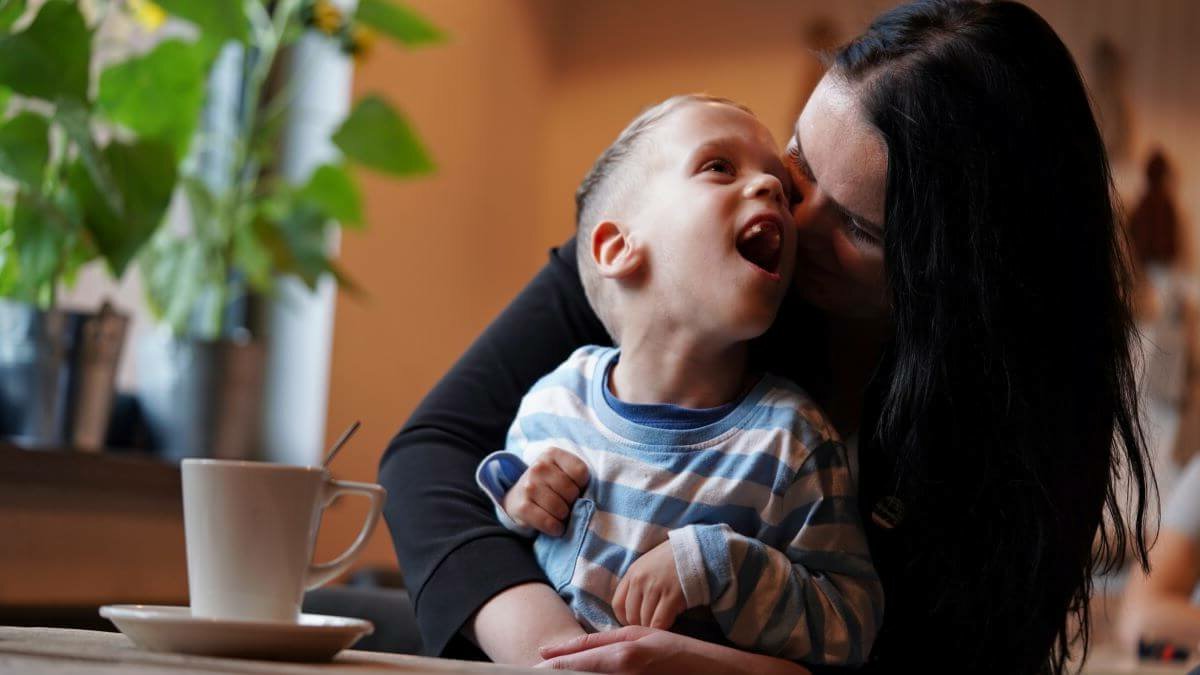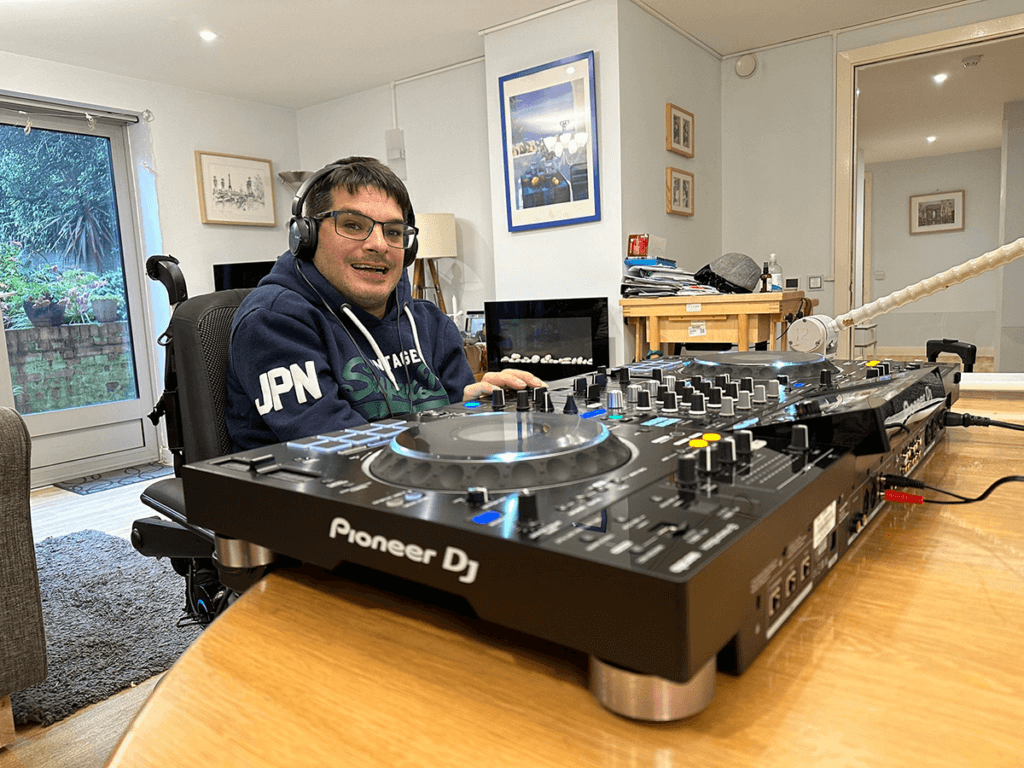“My name is Daniel Sutherland, and I have spent the last three years completing a PhD funded by Cerebra and the University of Warwick. My research has focused on the development and evaluation of a new programme called Positive Family Connections for families of children with learning disabilities or who are autistic.
Positive Family Connections aims to enhance family relationships and well-being and involved six two-hour online sessions which are facilitated by family carers and delivered to groups of up to six families. The programme was co-produced with family carers of children with developmental disabilities, meaning that family carers and researchers worked together to develop it. In fact, some of these family carers and researchers have since created been involved in developing guidance on how to co-produce research with family carers effectively.
For my first PhD study, we evaluated existing research on support programmes for families of people with developmental disabilities which focus on family relationships. We found a small number of studies evaluating such programmes. Whilst they often found evidence of positive effects, there was a lack of high-quality trials which would help us to be more confident in evaluating their effects.
The second study of my PhD aimed to address this lack of research by conducting an initial trial of Positive Family Connections, with two goals. First, we wanted to learn whether it was possible to deliver the programme and collect the data that we would need to do a larger-scale trial in the future. Second, we wanted to gather some initial information about whether or not the programme helped to improve family relationships and wellbeing.
Sixty families participated, with half randomly selected to take part in Positive Family Connections straight away, while the other half were offered the programme a year later. We collected information over nine months to assess the programme’s impact on well-being and family relationships. There were promising findings that a larger-scale trial would be possible and that Positive Family Connections might be beneficial for parental well-being and aspects of family relationships. However, a large-scale trial would be needed to be confident in this.
In the trial, we used questionnaire-based measures to assess the effects of Positive Family Connections. However, we also wanted to explore participants’ in-depth experiences with the programme.
My third study involved focus groups and interviews with participants to understand what they thought of Positive Family Connections, its impact on them, and the processes behind those impacts. Participants described valuing the programme, noting positive effects on their well-being that extended to their families. They particularly valued the fact that the programme was delivered by family carer facilitators who understood their experiences, which fostered authentic connections and enhanced the programme.
For my final study, we analysed data from the Cerebra 1000 Families Study, which has collected data from families of children with learning disabilities over seven years. We know that when children are experiencing behavioural and emotional difficulties, this can have an impact on parents own mental health. However, in this study we found that some of the impact on parents’ mental health might also be due to children’s difficulties leading to more pressure on family relationships – highlighting the importance of supporting family relationships in families of disabled children.
Overall, it has been a privilege to work on this research over the past three years. I have had the pleasure of meeting many wonderful families, both in co-producing research together, and all those who have taken part in our work. I hope that this research will help us to better understand how we can help families of disabled children to thrive. Furthermore, I hope to continue to contribute to the field moving forwards.
Now that I have submitted my PhD thesis, I am continuing to work on research with families of people with developmental disabilities through a fellowship programme and research assistant role at the University of Warwick, and I look forward to future opportunities to build upon this work”.
As part of our Research Strategy we are committed to developing the next generation of researchers who will champion the needs of children with neurodevelopmental conditions. We are very grateful to Daniel for his dedicated work and wish him well for a bright future ahead.










Please review Jean Barlow’s work on positive touch, she has supported lots of families to build better relationships, attachment and connection. View the film about work in schools, Calm, Focused and Freindly, produced by an American Thea Blair, which is based around schools but would work equally well in families. It is on You Tube.